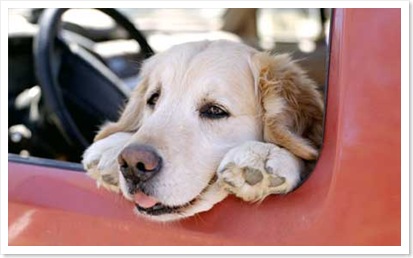Make sure that the cage is large enough for your pet to stand upright on all fours with enough room to turn a full 360 degrees. If your kennel does not comply with IATA regulations, any reputable airline will refuse to transport your pet.
Familiarize your pet with the kennel. Leave it open somewhere around the house, preferably with a familiar blanket or toy inside so that the animal becomes accustomed to the carrier. If the animal is still showing signs of concern, a good tip is to place a piece of clothing belonging to the family member the animals is closest to inside the carrier. This will usually calm the animal and help to overcome any separation anxiety.
Start slowly by coaxing your pet into the kennel, then lock the door and keep the pet in the kennel for increasing periods of time each day.
This should be ideally done at least 1 to 2 weeks before you travel.
Put an absorbent pad at the bottom of the cage and a padded cushion is better than a blanket as it'll stay in one place. If your pet is a digger or rips through stuff, make sure you put something that cannot shred....they could choke!

Try and get a water dish that fixes securely, like the ones that screw on (not the hook on type) to the cage door. And freeze some water in the container the night prior to leaving your home. By the time they are loaded and in flight, it'll melt and won't have spilt everywhere. I even attached a hook on sports bottle full of water with a funnel access to the cup inside (so no need to open the door), that way the handlers could give them water.
Attach an A4 size poster with your details, telephone, address and vet contact, plus details of the dog and a photo if possible. You can even add something like "Hi my name is ........, I am friendly but scared of flying. Please do NOT open the cage door without permission from my owners. Details below. etc.
Depending upon your dog, and the length of the flight, check about when you should feed him last. Less food in their stomach reduces the risk of airsickness and the chance of them soiling the cage.
If two dogs are traveling, ask that they be placed with they're doors facing each other if possible. It'll calm them.
At the check-in desk ask the clerk for a 'seal' so that you can seal the cage door. Seals can be broken off in a hurry in the event of an emergency. Do not put a padlock as they cannot be removed!
Make sure you actually SEE the dogs getting loaded onto the plane. If you cannot, then hassles the crew until you are satisfied that they have been loaded and are well.
Also, make sure that there is no coffin loaded on the plane. Regulations state that human remains and live animal cargo CANNOT fly together, as it can upset the animal considerably. Most airlines know this, but sometimes turn a blind eye; so it is worthy to check first!
One very important thing to remember is that animals may not be exposed to temperatures below -12 C (10 F) or above 30 C (85 F). Some airlines refuse to transport pets during the peak summer months and at certain times during winter. In particular this applies to all major US carriers. Even if you have booked and have received confirmation from the airline that everything is okay and your animal will be able to travel, there is always a slight possibility that due to weather conditions at either origin and/or destination, the airline might refuse to transport your pet when you arrive at the airport. Plan ahead for such contingencies, e.g. have relatives accompany you to the airport who can take the animal and ship it to you at a later point in time if such an emergency situation arises.
Having said that, consult your vet on the traveling fitness of your pet prior to travel. Certain breeds of dog (the 'pug-nosed' kinds in particular, including Pekinese, Boston Terriers, Bulldogs, Boxers, Lhasa Apsos, Shar Peis and other similar breeds) do not travel well in hot weather or to hot climates; older pets might require special attention and travel preparation.
Last but not least, carry a leash (or two) in your hand baggage. Do not hook the leash on the cage!
Email: info(at)petsventura.com
TEL: +54 11 4836-2290



No comments:
Post a Comment